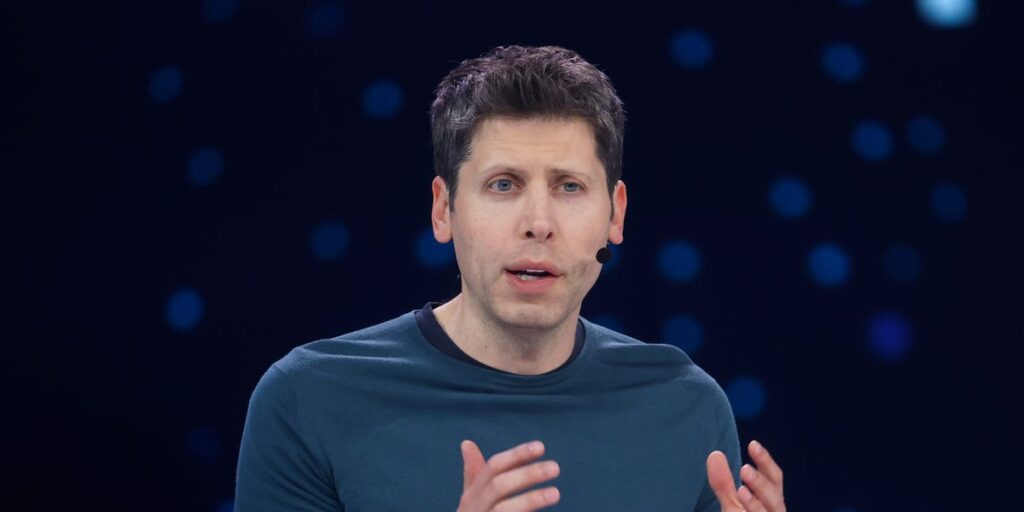OpenAI is emerging as a key player in India’s AI landscape, with JPMorgan spotlighting the country as a strategic growth frontier for the startup.
Bolstered by its strength in conversational AI, OpenAI is positioning itself to capture a significant share of India’s massive mobile-first, digital-native population, according to JPMorgan analysts, who published a big research note on the startup this week.
Youth and mobile penetration
India’s appeal is clear: more than 945 million mobile phone users and one of the youngest populations globally.
According to JPMorgan, ChatGPT has experienced faster download growth in India than in most other regions, aided by viral use cases such as AI-generated images in Studio Ghibli style.
JPMorgan/Sensortower
This momentum translated into sustained user acquisition and increased market share, particularly at the expense of competitors like Google’s Gemini, which saw a roughly 6% decline in total download share in India during the same period.
JPMorgan/Sensortower
Although India’s lower average discretionary income may limit near-term paid conversion rates, OpenAI leadership appears to be playing a long game.
CEO Sam Altman’s vision for ChatGPT as a personalized AI companion that integrates into daily life may resonate well in India’s tech-savvy urban market, where smartphones are central to productivity, communication, and entertainment.
Risks and monetization headwinds
JPMorgan notes that while OpenAI’s viral reach in India is undeniable, the path to monetization remains uncertain.
Generative AI inference costs for free users are non-trivial, and the company has yet to implement a freemium or ad-supported model in India. OpenAI’s current revenue mix leans heavily on subscription income, which may face headwinds in price-sensitive markets unless new monetization channels, like localized agents, lightweight mobile experiences, or enterprise integrations, are introduced.
“We suspect OpenAI is making a calculated decision that delaying monetization of free users will payoff long term,” the JPMorgan analysts wrote.
They cited the example of Meta, which delayed adding ads to its social media platforms and WhatsApp for years so it could amass as many users as possible before layering on monetization.
“Given the significantly higher costs associated with AI inference relative to prior software services, it is not clear such a strategy would be feasible for such a prolonged period of time,” the analysts warned.
Despite these challenges, OpenAI’s global growth strategy, capital strength ($63 billion raised to date), and recent acquisitions, such as Jony Ive’s hardware venture, suggest a clear intent to deepen its footprint in emerging markets, according to the JPMorgan note.
In sum, India offers OpenAI both a vibrant consumer testbed and a proving ground for long-term market share in a total addressable market that could be worth more than $700 billion globally by 2030, JPMorgan estimates.
Sign up for BI’s Tech Memo newsletter here. Reach out to me via email at abarr@busienssinsider.com.


